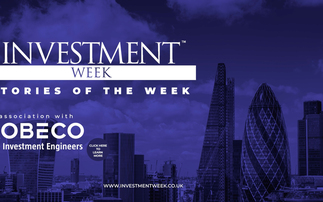The presence of corporate corruption in the US has made a victim of investors and should help stimulate the market
When George Bush went to Wall Street and delivered his speech about corporate reform in front of a banner that read 'Corporate Responsibility,'' I thought: it doesn't get any better than this. It was as if Bill Clinton had flown to Las Vegas to deliver a speech in front of a banner that read 'Sexual Abstinence''. But I was wrong. It did get better. Tipped off by a friend, I went to the C-Span website and watched the tape of the hearings of the House Financial Services Committee. The committee, previously known mainly as a good place to attract campaign funds from Wall Street, dragged befo...
To continue reading this article...
Join Investment Week for free
- Unlimited access to real-time news, analysis and opinion from the investment industry, including the Sustainable Hub covering fund news from the ESG space
- Get ahead of regulatory and technological changes affecting fund management
- Important and breaking news stories selected by the editors delivered straight to your inbox each day
- Weekly members-only newsletter with exclusive opinion pieces from leading industry experts
- Be the first to hear about our extensive events schedule and awards programmes








